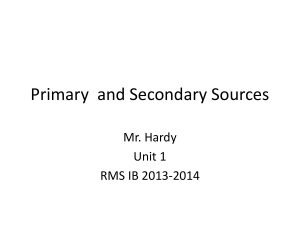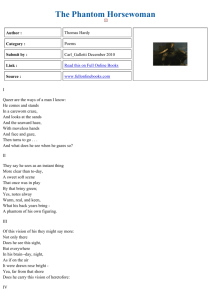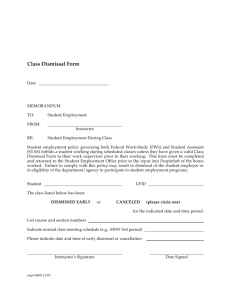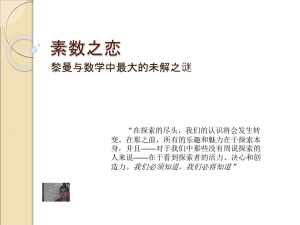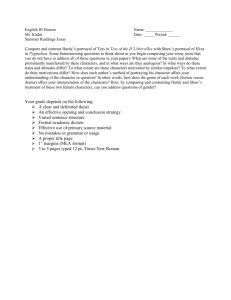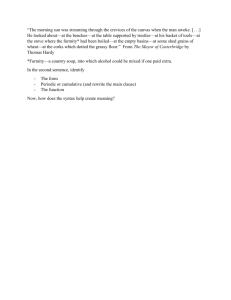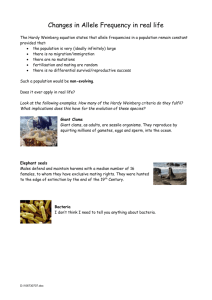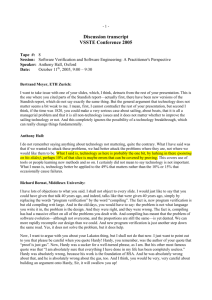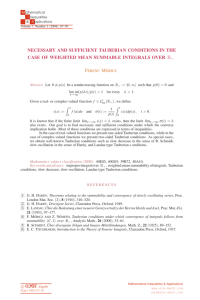The Trap of Hardy v. America's Best Home
advertisement
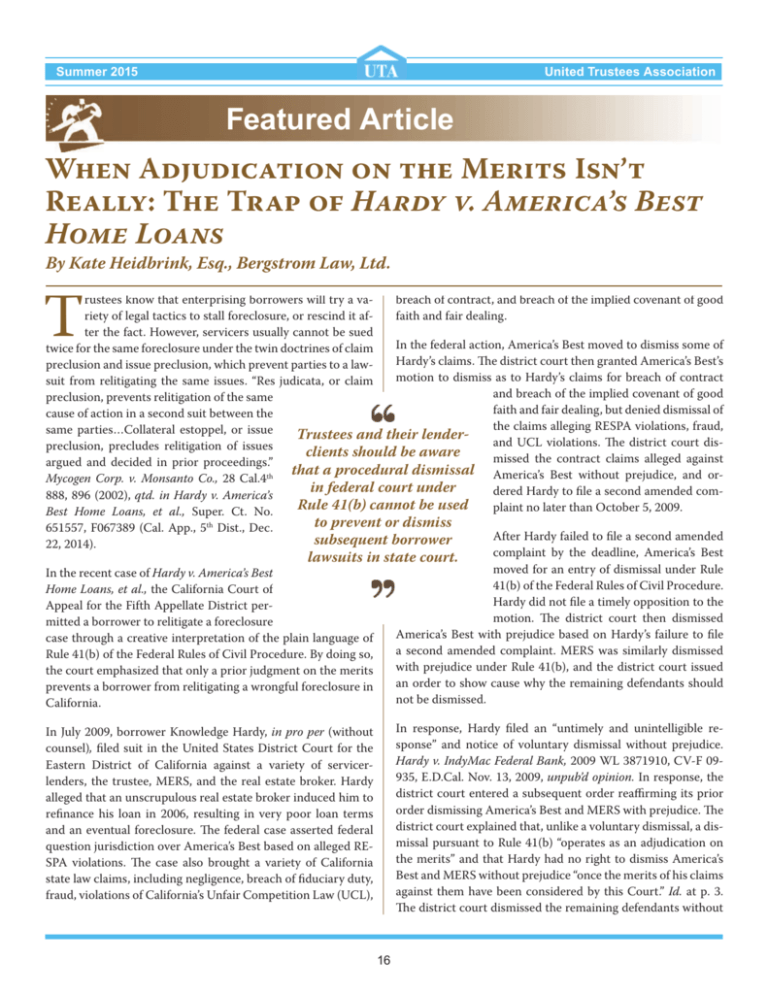
Summer 2015 United Trustees Association Featured Article When Adjudication on the Merits Isn’t Really: The Trap of Hardy v. America’s Best Home Loans By Kate Heidbrink, Esq., Bergstrom Law, Ltd. T rustees know that enterprising borrowers will try a vabreach of contract, and breach of the implied covenant of good riety of legal tactics to stall foreclosure, or rescind it affaith and fair dealing. ter the fact. However, servicers usually cannot be sued In the federal action, America’s Best moved to dismiss some of twice for the same foreclosure under the twin doctrines of claim Hardy’s claims. The district court then granted America’s Best’s preclusion and issue preclusion, which prevent parties to a lawmotion to dismiss as to Hardy’s claims for breach of contract suit from relitigating the same issues. “Res judicata, or claim and breach of the implied covenant of good preclusion, prevents relitigation of the same faith and fair dealing, but denied dismissal of cause of action in a second suit between the the claims alleging RESPA violations, fraud, same parties…Collateral estoppel, or issue Trustees and their lenderand UCL violations. The district court dispreclusion, precludes relitigation of issues clients should be aware missed the contract claims alleged against argued and decided in prior proceedings.” that a procedural dismissal America’s Best without prejudice, and orth Mycogen Corp. v. Monsanto Co., 28 Cal.4 in federal court under dered Hardy to file a second amended com888, 896 (2002), qtd. in Hardy v. America’s Rule 41(b) cannot be used plaint no later than October 5, 2009. Best Home Loans, et al., Super. Ct. No. to prevent or dismiss 651557, F067389 (Cal. App., 5th Dist., Dec. After Hardy failed to file a second amended subsequent borrower 22, 2014). complaint by the deadline, America’s Best lawsuits in state court. moved for an entry of dismissal under Rule In the recent case of Hardy v. America’s Best 41(b) of the Federal Rules of Civil Procedure. Home Loans, et al., the California Court of Hardy did not file a timely opposition to the Appeal for the Fifth Appellate District permotion. The district court then dismissed mitted a borrower to relitigate a foreclosure America’s Best with prejudice based on Hardy’s failure to file case through a creative interpretation of the plain language of a second amended complaint. MERS was similarly dismissed Rule 41(b) of the Federal Rules of Civil Procedure. By doing so, with prejudice under Rule 41(b), and the district court issued the court emphasized that only a prior judgment on the merits an order to show cause why the remaining defendants should prevents a borrower from relitigating a wrongful foreclosure in not be dismissed. California. In response, Hardy filed an “untimely and unintelligible response” and notice of voluntary dismissal without prejudice. Hardy v. IndyMac Federal Bank, 2009 WL 3871910, CV-F 09935, E.D.Cal. Nov. 13, 2009, unpub’d opinion. In response, the district court entered a subsequent order reaffirming its prior order dismissing America’s Best and MERS with prejudice. The district court explained that, unlike a voluntary dismissal, a dismissal pursuant to Rule 41(b) “operates as an adjudication on the merits” and that Hardy had no right to dismiss America’s Best and MERS without prejudice “once the merits of his claims against them have been considered by this Court.” Id. at p. 3. The district court dismissed the remaining defendants without In July 2009, borrower Knowledge Hardy, in pro per (without counsel), filed suit in the United States District Court for the Eastern District of California against a variety of servicerlenders, the trustee, MERS, and the real estate broker. Hardy alleged that an unscrupulous real estate broker induced him to refinance his loan in 2006, resulting in very poor loan terms and an eventual foreclosure. The federal case asserted federal question jurisdiction over America’s Best based on alleged RESPA violations. The case also brought a variety of California state law claims, including negligence, breach of fiduciary duty, fraud, violations of California’s Unfair Competition Law (UCL), 16 United Trustees Association Summer 2015 Featured Article prejudice pursuant to Hardy’s notice of voluntary dismissal and closed the action. Id. In 2010, Hardy, in pro per, sued the same set of defendants in state court in the Superior Court of Stanislaus County, adding defendant OneWest Bank, which acquired the property at the foreclosure sale. In the state court action, Hardy alleged the following causes of action: fraud, breach of contract or rescission, negligence, breach of fiduciary duty, and violations of the UCL. The case proceeded to trial against America’s Best only. Seven days before trial, America’s Best filed an ex parte application for an order granting leave to amend their answer to add res judicata and collateral estoppel (claim and issue preclusion) as affirmative defenses. The trial court denied the application, but America’s Best filed a motion for judgment on pleadings based on res judicata and collateral estoppel. The trial court heard oral argument on that motion at the trial. America’s Best argued that collateral estoppel barred the state court action because the issues had been “fully and fairly litigated” in the federal action. Hardy argued America’s Best was raising issues about res judicata on a case that was dismissed for failure to prosecute and never decided on its merits. The trial court found that the federal court proceeding resulted in a ruling “on the merits” and granted the motion for judgment on the pleadings. Hardy appealed the trial court judgment, arguing that the federal action was dismissed, not on the merits, but for failure to prosecute, which does not have a res judicata or collateral estoppel effect under California law. The court of appeals noted that, under the California doctrine of collateral estoppel, a prior decision precludes relitigation of an Continued on page 44 17 Summer 2015 United Trustees Association Featured Article THE TRAP — Continued from Page 17 issue only if five requirements are met: (1) The issue is identical to that in the former case; (2) The issue was actually litigated in the former case; (3) The issue was decided in the former case; (4) The decision in the former case was final and on the merits; and (5) The party against whom preclusion is sought must be the same as the party to the former proceeding. that a procedural dismissal in federal court under Rule 41(b) cannot be used to prevent or dismiss subsequent borrower lawsuits in state court. Despite the plain language of Rule 41(b), federal and state interpretation has made the phrase “operating as an adjudication on the merits” a trap for the unwary when it comes to defending against subsequent actions. Hardy analogized the dismissal in the federal case under Rule 41(b) to a dismissal for failure to prosecute in state court, and thus argued that collateral estoppel did not apply under California state law because the dismissal of the federal action was not on the merits. The court thus agreed with Hardy’s theory that collateral estoppel did not apply in the state court action. Kate Heidbrink is an Associate Attorney and Foreclosure Manager at Bergstrom Law, Ltd. Her primary practice areas are foreclosure, bankruptcy, and collections. Kate can be reached at kheidbrink@jbergstromlaw.com. However, America’s Best argued that the plain language of the dismissal order and of Rule 41(b) indicated that the dismissal in the federal action was a dismissal on the merits. Rule 41(b) provides in part: “Unless the dismissal order states otherwise, a dismissal under this subdivision…operates as an adjudication on the merits.” However, the court of appeals noted that the United States Supreme Court has determined that Rule 41(b) is not a claim-preclusion rule, but merely a procedural rule, citing Semtek Int’l Inc. v. Lockheed Martin Corp., 531 U.S. 497 (2001). Semtek also dealt with a federal case arising under California law and dismissed under similar circumstances, so the court of appeals cited that case extensively to support Hardy’s right to relitigate the same claims against America’s Best. In Semtek, the United States Supreme Court held that Rule 41(b) “operating as an adjudication on the merits” only prevented refiling in the same federal court, not refiling in a different federal or state court. After further discussion as to why Hardy was not precluded from bringing his claims against America’s Best based on state or federal law, the court of appeals ultimately reversed the trial court’s judgment. The court of appeals noted throughout its opinion that Hardy was representing himself without an attorney. While not one of its legal arguments, the court appears to be especially dismissive of the lender’s claim that the borrower shouldn’t be able to relitigate in state court because of the procedural nature of the federal dismissal. In any case, trustees and their lender-clients should be aware 44
